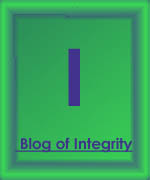What Shall We Do With the Drunken Sailor is a fabulous, rumbunctious, hale and hearty shanty which I can remember singing when I was small with a particularly convincing slur (that'll be down to my alcoholic aunt then...). In truth I wouldn't call it a nursery rhyme, but that doesn't mean that children shouldn't sing it. They may do it with more attention to diction than this hairy lot...if anyone can work out exactly what should be done with a drunken sailor from the following, um I'll think of some sort of prize:
The dilemma presented within its verses will be a familiar enough concept to any child with a family member who likes a tipple, or indeed any child who has attended a wedding with their parents in tow. One solution generally offered: 'Put him in the brig until he's sober' seems to me an eminently sensible and practical solution, although the modern child may wish to use a broom cupboard or cellar should no brig be available to them. Iinfinitely preferable to "Watch Dad try and pull the best man's girlfriend."
Seriously, there was a party a few years ago where a little girl we know had to watch her out-of-it-again Mum systematically (and unsuccessfully) try and shag each and every one of her friends' Dads as the evening wore interminably on, and then live it down at school the following Monday. I feel a brig or at least a spare room with a lock on it would have come in very handy quite early on in proceedings. The Mum, of course, could remember nothing. Which isn't the point.
Nursery rhymes, fairy tales, folk music and myths are there as a guide, a sort of unwritten handbook. They contain the wisdom of generations and although there aren't always clearcut answers offered up, they do help children make sense of what often seems a bewildering world peopled by giants who are unpredictable, strange, often drunk and sometimes cruel. Bruno Bettelheim wrote a book exploring the psychology behind folklore in The Uses of Enchantment: The Meaning and Importance of Fairy Tales.
In it, he argues that far from shielding our children from the scarier or more unpleasant aspects of the stories handed down to us, we should encourage their retelling as a way of helping kids encounter and examine 'unmentionables' like alcoholism, rape, incest and murder.
In fact Bettelheim has used the harsh realities contained within Little Red Riding Hood, Jack and The Beanstalk, The Three Little Pigs and many other tales and rhymes in his work with children as a therapist.
But no, the powers that be have decreed that drunken sailors and their antics be replaced with grumpy pirates.
Excuse me, but what's so PC and preferable about grumpy pirates anyway? There are two flaws in this substitution:
- The pirate in question may feel unfairly singled out for attention - is it his or her fault they have melancholic inclinations? What if it's actually a case of mild depression or seasonal affective disorder, just to entangle us further in PC hocus pocus.
- The pirate in question could well be hungover. Which leaves us with our original problem
Apparently Bookstart has raided the original nursery rhyme because it wants to stage pirate-themed events at book readings for children. Not because of any sensitivity about alcohol references you understand.
What Bookstart has achieved is further Disneyfication of our children's lives, where no one behaves inappropriately and no one gets hurt.
Anodyne, meaningless, soulless and very, very pointless. And utterly lacking in danger and excitement, which are also important building blocks in the child's imagination. Not all children have had to put up with drunken sailors in their lives, but shouldn't we let them at least have a go at working out what they'd do with one if they did?







